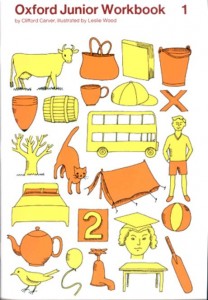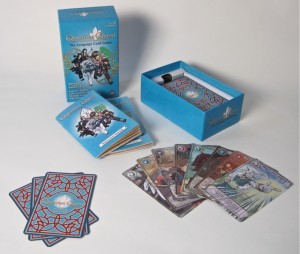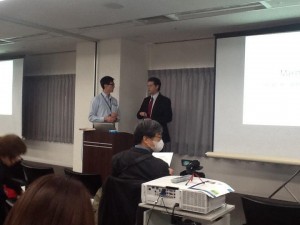Review: Oxford Junior Workbooks
An oldie but goodie
The Oxford Junior Workbook series is a great homework resource for elementary school age children. There are ten workbooks in the series, from the introductory A and B, to the 1-8 of the main series. We have been using these for many years now, and find them extremely useful as supplementary homework for children (post-phonics, pre-intermediate).
The Good
- Price. The books are 735 yen before discounts, so one of the most economical workbooks around.
- Intuitive. Most of the exercises are fairly intuitive and require little explanation. Perfect for homework.
- Well designed. The books build up language and concepts slowly in a very learner-friendly way.
- Range of activities. There are a range of activities, from colouring to matching, writing, and drawing.
The Bad
- Dated. The books are showing their age in terms of design.
- Dated. Some of the language and content is archaic (ink blot?).
- Dated. Slightly sexist and non-PC at times.
Overall
Overall the Oxford Junior Workbook series is a great way to provide extra work outside of class that student enjoy and find useful. They can be used in lockstep by assigning specific pages as homework, or individually by allowing students to work at their own pace. The books are cheap enough that buying one or two each year shouldn’t break the bank.
Very much recommended.
Review: Question Quest The Language Card Game
We’ve been trying out Question Quest for the last few weeks at Cambridge English.
We love AGO, the UNO-like simple English question game, and David Lisgo’s Switchit card games.
When I saw Question Quest’s website I was extremely interested. It seemed like it would appeal to our teenage learners and complement our existing card games so I ordered a copy immediately.
Once it arrived I was impressed with the production values. The game is very attractive, with incredible artwork, quality materials, and a sturdy box.
The good
- The artwork is beautiful and very appealing to Japanese teenagers
- The game includes English and Japanese instructions
- The materials are high-quality and pretty sturdy
- The language covered is very appropriate for our students
- Cards include example sentences to help students
- The gameplay is interesting and more skilled players are more likely to win
- Students practice strategies such as asking for more information, asking a third party, and expressing their lack of understanding
- Reasonably priced (1575 yen for over 100 cards)
The bad
- The game as written takes a long time to play (probably 20-40 minutes), which was a bit long for us
- It took a while for us to understand the rules, both teachers and students
- Some of the example questions on the cards are a bit unintuitive
Overall
This is a very promising resource. We normally do some kind of game or activity in the last 5-10 minutes of class, so found that Question Quest did not quite fit in that time. However, we were able to adapt the game (teacher asks the questions to students, playing without the conversation strategy cards, etc.) to fit the shorter time.
We also took some time and played some full games. Lots of fun and the students are practicing useful conversational gambits.
Overall I recommend Question Quest to teachers of teenage or young adult students (although it would certainly work with the right group of adults too). It’s an attractive and versatile resource. A single pack is a very reasonable investment for a small classroom: teachers with larger classes would need one set for each group of up to 4-6 players.
Has anyone else tried this game?
Collaboration Arithmetic
Recently I have been working a lot with one of my colleagues at my university.
A lot of the time, working with others is a drag on effectiveness. Things take longer to get done, you need to agree on what to do, people don’t do their share. It tends to be 1+1 ends up being less than two, and for every person you add to the mix the final number gets lower and lower. After a certain point the results drop to zero.
However, once in a while you end up with a team that works. Synergy occurs as your complementary skill sets allow you to do things that you couldn’t do by yourself.
In that rare situation, 1+1 ends up being 3 or 4 or 5.
We have a new project in the works, and I think you will like it. More details in 2014.
In the meantime, if you don’t have a copy of our ER Program Design Manual, why not order a free copy from our Center for Professional Development?
Have you ever had a synergistic collaboration?
conference curriculum elllo extensive listening extensive reading graded readers language courses Language learning materials online resources presentations self-study
by sendaiben
2 comments
Oxford Day 2013 video, slides, and writeup
I was extremely lucky to be invited to speak at the first Oxford Day in Japan this month.
I wasn’t really sure what to expect, but I really enjoyed the whole thing. 188 teachers attended, and there were nine presentations (five time slots). The venue was a very comfortable meeting space in Shibuya, and the provided coffee and sandwiches were excellent.
Most importantly for me, I had a fantastic group of teachers in my presentation who were very forgiving and asked me a bunch of questions at the end. Here is a copy of my slides in .pdf format and the video of the presentation is below:
131123 Maximising Input (slides in .pdf format)
If you have any questions please let me know in the comments, or send me an email to sendaiben@gmail.com.
conference extensive listening extensive reading materials online resources presentations teaching
by sendaiben
1 comment
Oxford Day 2013
I’m really pleased to be part of Oxford Day 2013, to be held in Tokyo on November 23rd.
You can see more information here.
My workshop is from 13:00 to 14:00:
Maximising input through extensive reading and listening resources (Room 2)
Teachers and learners all know that the way to get better at English is to get a lot of input (through extensive reading and listening) and practice (through speaking and writing). The hard part is actually doing that day in, day out. One important factor is whether learners can find content at their level that interests them. This 60-minute workshop will introduce a variety of resources, both online and off, suitable for all levels, as well as how to best introduce them to learners in a way that encourages and motivates.
It really is a great lineup, it’s free, and you even get a complimentary lunch 😉
Register here, and I hope to see you there.



